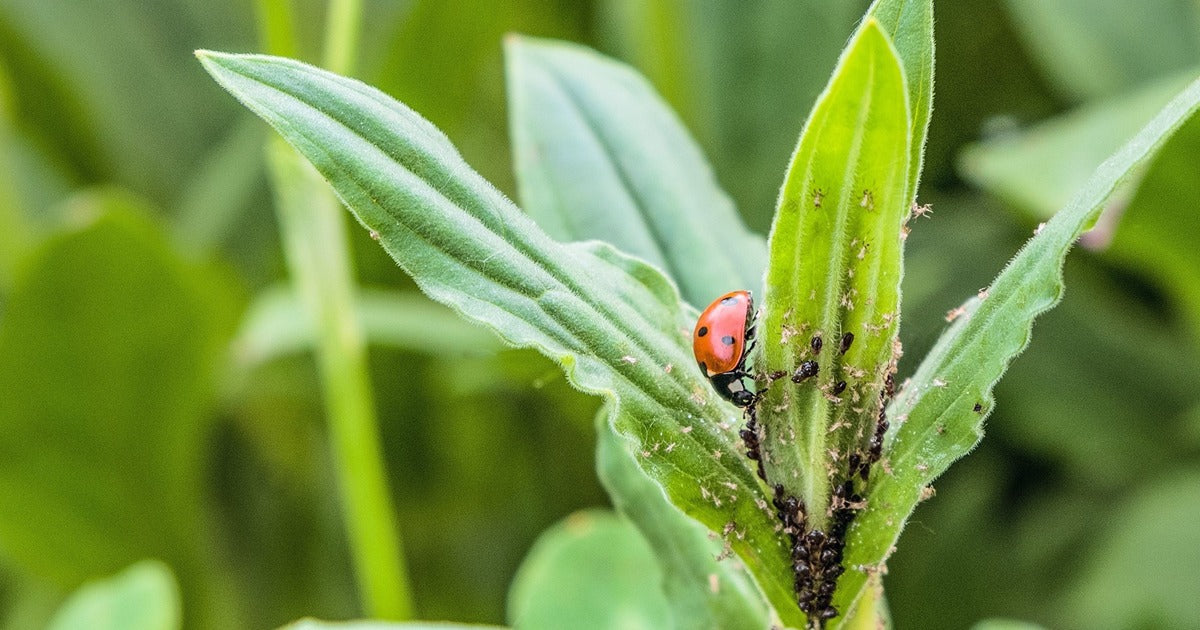
Biological Pest Control Becoming The Norm
My first Dragonfli blog, so I thought I'd better start with a good one! Which is why I will begin discussing the great advances in the biological control of pests, seeing as I have dedicated a large part of my career towards this.
When I started working in the biological control industry, over 25 years ago, we had about four beneficial insects that we could recommend to professional growers to try, and only two or three crops where growers would then use them. There was virtually no use of beneficial insects, or certainly very little knowledge of them in the gardening and hobby sectors. Wow, how things have progressed!
A whole range of different natural enemies and beneficial insects are now being used by growers on a wide variety of crops, and not only on food crops, but ornamental crops too.


Biological control treatments, such as Phytoseiulus persimilis predators against Spider Mite, and Amblyseius swirskii against Thrip, have become commonplace among professional growers and hobby gardeners alike.
Gardeners & House Plant Owners Now Benefitting From Biological Control
It is not only professional growers that benefit from these industrious bio-control critters, but now also, the average gardener and house plant owner. Most gardeners are now at least aware of nematodes for the control of many soil borne pests and even if they have not tried them yet, they will most likely give them a go over the next few years.

A microscopic close up of Steinernema feltiae nematodes. Nematodes can be easily used to control a wide variety of insect pests.
Growers & Gardeners Increasingly Reducing Use Of Insecticides
So why are growers and gardeners turning away from traditional insecticides? There is no one, single, answer but rather a combination of factors, which I could write chapters on, but as I need to keep your attention, here is a quick summary:
1. Supermarkets don’t like chemical residues on the food they sell, forcing growers to look for alternatives.
2. The cost of bringing new chemical insecticides to the market is enormous and highly regulated. This reduces the development of new agrochemical products, especially in small markets such as the gardening sector, so gardeners are forced to look for other ways to control pests.
3. Consumers are more environmentally aware and are receptive to alternatives to traditional chemical insecticides

A more ecological outlook among suppliers and consumers has increased the interest in biological control, where bugs such as the Orius laevigatus, seen here, are considered to control pests.
4. Biological control works! Pest insects simply cannot become resistant to being attacked or eaten by another insect! This contrasts with the use of chemical insecticides, where pest populations are often able to build a resistance to the sprays.
5. Some fantastically innovative companies such as Koppert Biological Systems, have taken biological control global. At a significantly lower level, companies such as my own, Dragonfli Ltd, have given gardeners access to some of this green technology.

Dragonfli are able to supply these biological control solutions to everyday gardeners and owners of house plant collections.
Biological Control Developing For Livestock Pests As Well As Plant Pests
One of the many exciting features of biological control is its continual evolvement, and for me, the most exciting change of late is the new availability of controls to treat livestock pests, as well as plant pests.
I could not have imagined 25 years ago that we would now be looking at pest control for livestock, but it is now starting. Here at Dragonfli we can now supply predatory mites for control of Red Mite on Chickens, and control for Snake Mite on Snakes and Reptiles. How amazing is that?

Our new bottles of Taurrus contain predators for the natural control of Snake Mite so reptile owners can protect their pets from harm.

Our bottles of Androlis contain predators for the natural control of the horrible Red Mite pest on chickens and birds.
Where Next For Biological Control?
I will tell continue to update you on the exciting new developments in biological control in future blogs, but for now keep learning and watching out for more developments in this brilliant, natural, chemical-free form of pest control that represents the future of how we combat pest infestations in the garden, in the home and on our livestock.
Of course if you ever need any personal advice on your own pest infestations, or about biological control generally, please feel free to contact us here and we'll be happy to help.




